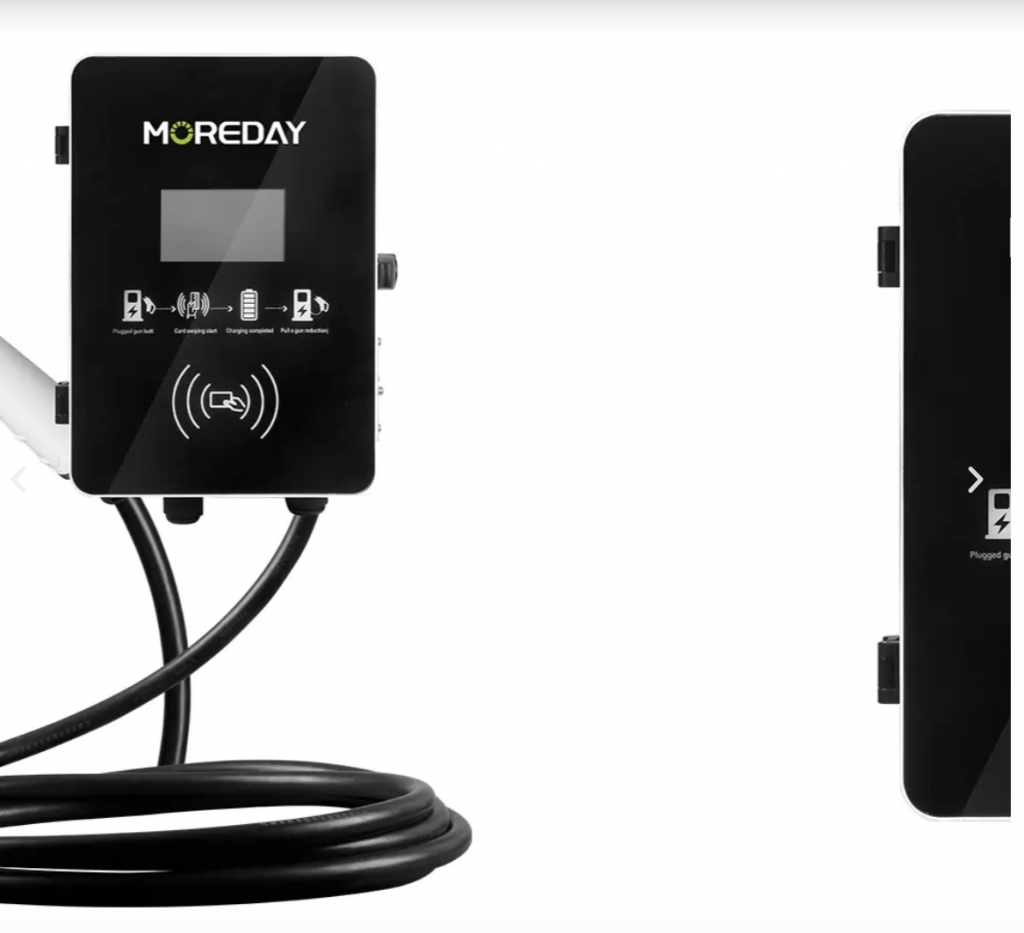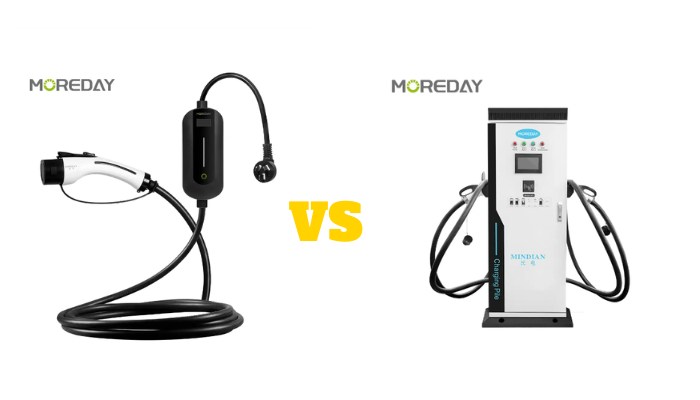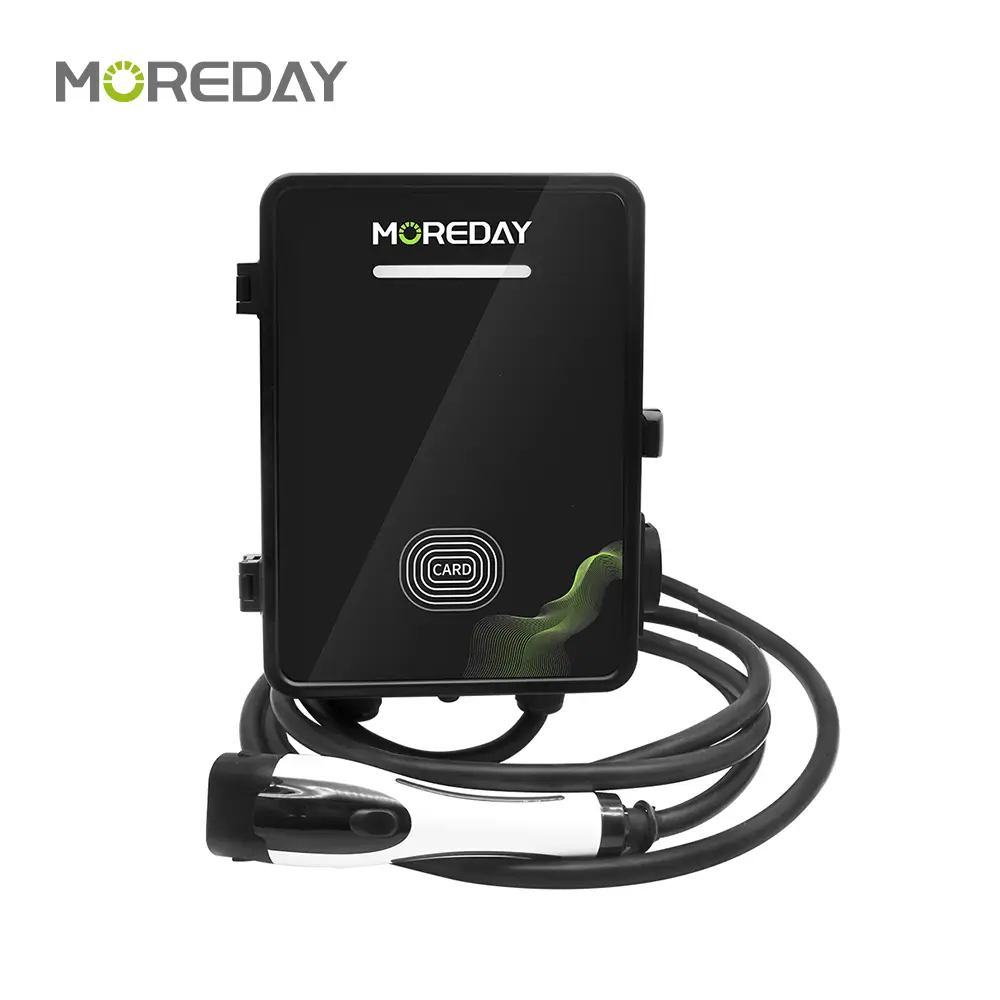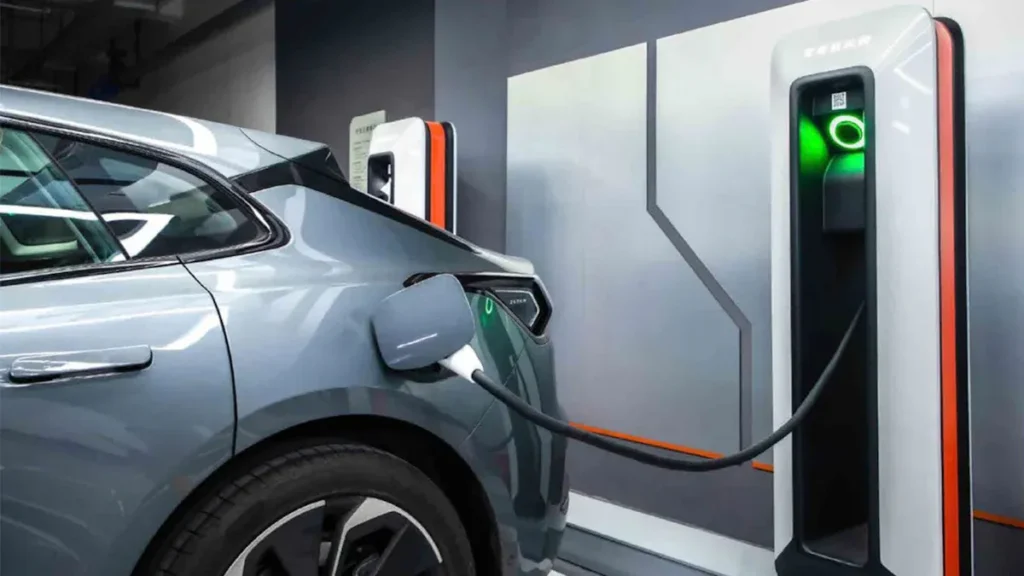Owning an electric vehicle (EV) means you need a reliable way to charge it. A level 2 charger offers faster charging speeds and greater convenience, making it a popular choice for many EV owners. Over 80% of EV drivers rely on at-home charging, and more than 75% of them use level 2 chargers. This widespread adoption highlights its impact on improving charging experiences.
| Statistic | Percentage |
| EV drivers relying on at-home charging | 80% |
| Level 2 chargers among all chargers | over 75% |
Although the equipment costs between $500 and $2,000, and installation expenses range from $799 to $1,999, the benefits often outweigh the initial investment. These chargers typically require minimal electrical upgrades, making them accessible for most households.
Table of Contents
ToggleKey Takeaways
- Level 2 chargers charge faster, adding 10-60 miles per hour.
- Having one at home saves time and avoids public chargers.
- They cost more upfront but save money and time later.
- Think about your driving and public charger use to decide.
What is a Level 2 Charger?

A level 2 charger is a device that charges electric vehicles (EVs) using a 240-volt AC circuit. This is the same type of circuit used by household appliances like ovens or dryers. It delivers between 10 to 60 miles of range per hour of charging, making it significantly faster than a Level 1 charger.
You can find these chargers in homes, workplaces, and public charging stations. They are ideal for EV owners who need quicker charging solutions for daily use.
Key Features
- Cost-Effective Installation: Installing a Level 2 charger is more affordable than a Level 3 charger. It requires standard electrical upgrades, making it accessible for most homes and small businesses.
- Moderate Charging Time: It provides 10 to 60 miles of range per hour, which is sufficient for overnight charging.
- Efficient for Daily Use: You can easily top up your EV’s battery during the night or while at work. This ensures your vehicle is ready for daily commutes.
- Convenience: With a level 2 charger at home, you avoid frequent trips to public charging stations.
These features make the level 2 charger a practical choice for many EV owners, especially those who prioritize convenience and efficiency.
How Level 2 Charger Works

The level 2 charger connects to your EV through a charging cable. It uses a 240-volt power source to transfer electricity to the vehicle’s battery. This higher voltage allows it to charge your EV much faster than a standard 120-volt Level 1 charger.
Most EVs can achieve a full charge in 4 to 8 hours, depending on the battery size and the charger’s output. This makes it perfect for overnight charging or extended parking periods.
Pros of Level 2 Charger
1. Faster Charging Speeds
A Level 2 charger significantly reduces the time needed to charge your EV compared to a Level 1 charger. While Level 1 chargers provide only 2 to 5 miles of range per hour, Level 2 chargers deliver 10 to 60 miles per hour.
This faster speed ensures your EV is ready for use in a fraction of the time. For example, you can fully charge most EVs overnight, making it ideal for daily commutes or long trips.
| Charger Level | Range per Hour |
| Level 1 | 2 to 5 miles |
| Level 2 | 10 to 60 miles |
| Level 3 | 100 to 200 miles in 20-30 minutes |
2. Convenience of Home Charging
Having a level 2 charger at home eliminates the hassle of frequent trips to public charging stations. You can charge your EV overnight or during downtime, ensuring it’s always ready when you need it. This convenience is especially beneficial if you have a busy schedule or limited access to public EV charging stations.
Tip: Installing a level 2 charger at home can save you time and provide peace of mind, knowing your EV is charged and ready to go.
3. Long-Term Cost Savings
Charging your EV at home with a level 2 charger is more cost-effective than relying on public charging stations. Public Level 2 chargers typically cost between $0.20 and $0.25 per kWh, while home charging costs around $0.16 per kWh. DC fast chargers are even pricier, ranging from $0.40 to $0.60 per kWh. By charging at home, you can save significantly over time. Additionally, using time-of-use pricing during off-peak hours can further reduce your costs.
- Charging at home costs less than public charging.
- Time-of-use pricing helps you save more by charging during off-peak hours.
- Avoiding public charging reduces overall expenses.
Cons of Level 2 Charger
1. Higher Upfront Costs
The initial cost of installing a level 2 charger can be a barrier for some EV owners. The equipment itself ranges from $500 to $2,000, and installation costs vary between $799 and $1,999. These expenses include electrical work, mounting, and testing. While the long-term savings are substantial, the upfront investment may not fit every budget.
2. Installation Requirements
Installing a level 2 charger requires specific electrical upgrades. A site assessment determines the best location for the charger, ensuring safety and accessibility. Electrical work involves running a 240-volt line and possibly upgrading your electrical panel. The process also includes mounting the unit and testing the system to ensure proper functionality.
| Installation Requirement | Description |
| Site Assessment | Determines the best location for safety and accessibility. |
| Electrical Work | Involves running a 240V line and upgrading the electrical panel if needed. |
| Mounting and Hardware Setup | Includes mounting the unit and making electrical connections. |
| Testing and Commissioning | Verifies power delivery and charging speed. |
3. Not Necessary for All EV Owners
If you use your EV occasionally or have reliable access to public charging stations, a level 2 charger may not be essential. Level 1 chargers can suffice for light usage, especially if you don’t drive long distances daily. Additionally, the upfront cost of installing a level 2 charger might not justify the investment for infrequent EV users.
Is Level 2 Charger Worth It?

1. When It Makes Sense
Frequent EV Use or Long Commutes
If you drive your EV daily or cover long distances, a level 2 charger can be a game-changer. It charges your vehicle much faster than a standard Level 1 charger, ensuring your EV is ready whenever you need it. For instance, you can fully charge your car overnight, even if the battery is nearly empty. This makes it ideal for busy schedules or long commutes where downtime is limited.
Limited Access to Public Charging
A level 2 charger is especially valuable if public charging stations are scarce in your area. Relying on public EV charging can be inconvenient and time-consuming. With a home charging station, you can avoid the hassle of searching for available chargers. This convenience ensures your EV is always ready to go, whether for work or leisure.
Need for Faster Home Charging
Installing a level 2 charger at home provides a significant upgrade in charging speed. It delivers 10 to 60 miles of range per hour, compared to the 2 to 5 miles offered by a Level 1 charger. This faster charging capability is perfect for households with multiple EVs or those who frequently need a quick recharge. It transforms your home into a reliable charging hub.
2. When It May Not Be Necessary
Occasional EV Use
If you only use your EV occasionally, a level 2 charger might not be essential. A Level 1 charger can handle light usage, especially if you don’t drive long distances. For example, if you only need to charge your vehicle once or twice a week, the slower charging speed of a Level 1 charger may suffice.
Reliable Access to Public Charging
Living near reliable public charging stations can reduce the need for a home charging station. If you can easily access public chargers during your daily routine, investing in a level 2 charger may not be necessary. Public chargers can meet your needs without the upfront cost of installing a level 2 charger.
Budget Constraints
The cost of a level 2 charger and its installation can be a significant investment. If your budget is tight, sticking with a Level 1 charger or using public charging stations might be more practical. While a level 2 charger offers long-term savings, the initial expense may not align with your financial priorities.
Note: Evaluate your driving habits, access to public chargers, and budget before deciding if a level 2 charger is right for you.
Level 2 Charger VS Level 1 and Level 3 Charger

1. Level 1 Charger Comparison
Charging Speed
Level 1 chargers operate at 120 volts and provide a charging speed of 2 to 5 miles of range per hour. Charging your EV with a Level 1 charger can take anywhere from 8 to 24 hours for a full charge, depending on your battery size. In contrast, a level 2 charger operates at 240 volts and delivers 10 to 60 miles of range per hour. This means most EVs can achieve a full charge in just 4 to 8 hours. If you rely on your EV daily, the faster charging speed of a level 2 charger can save you significant time.
Cost and Installation
Level 1 chargers are the most cost-effective option. They typically cost between $300 and $600, and installation expenses are minimal or nonexistent since they plug into standard outlets. However, installing a level 2 charger involves higher costs.
The equipment ranges from $600 to $2,500, and installation costs can vary between $200 and $1,200. Despite the higher upfront investment, the convenience and efficiency of a level 2 charger make it a worthwhile consideration for frequent EV users.
| Charging Level | Charger Cost | Installation Cost | Operating Cost |
| Level 1 | $300 – $600 | Minimal to None | Low |
| Level 2 | $600 – $2,500 | $200 – $1,200 | Moderate |
2. Level 3 Charger Comparison
Use Cases
Level 3 chargers, also known as DC fast chargers, are designed for rapid charging. These chargers are ideal for highway travel stops, where drivers need quick recharges during long trips. They are also essential for commercial fleet operations that require fast turnaround times. Urban charging hubs often use Level 3 chargers to provide fast charging options in densely populated areas. While they offer unmatched speed, they are not typically used for residential purposes.
Cost and Accessibility
The cost of Level 3 chargers is significantly higher than Level 2 chargers. Establishing a Level 3 charging station involves upfront costs starting at $20,000 and can exceed $150,000, depending on site requirements. These costs include the charger, installation, and necessary electrical upgrades. Additionally, ongoing maintenance expenses average around $1,500 annually. Due to these high costs, Level 3 chargers are primarily found in commercial or public settings rather than homes.
Choosing the Right Option
When deciding between Level 1, Level 2, and Level 3 chargers, consider your specific needs. Level 1 chargers are cost-effective and portable, making them suitable for occasional EV charging at home. A level 2 charger offers faster charging speeds and is ideal for residential, workplace, or public use.
Level 3 chargers provide rapid charging for long trips or high-demand scenarios, but their high costs and infrastructure requirements limit their accessibility. By evaluating your driving habits, budget, and access to public charging, you can choose the option that best fits your lifestyle.
| Charger Level | Installation Cost | Charging Speed | Use Cases |
| Level 1 | Minimal to None | 2-5 miles/hour | Home charging, portable use |
| Level 2 | $500 – $2,000 | 10-60 miles/hour | Residential, workplace, public charging |
| Level 3 | $10,000 – $150,000 | 60-100 miles/20 minutes | Highway stops, commercial fleets |
Why Choose the MOREDAY Level 2 Charger?

Key Features
MOREDAY Level 2 chargers stand out due to their innovative design and advanced features. These chargers are built to deliver reliable performance in various environments. For instance, the IP65 protection ensures the charger remains dust and water-resistant, making it suitable for both indoor and outdoor use. The durable build guarantees long-lasting performance, while the efficient charging speeds help you get back on the road quickly.
Here’s a quick overview of what makes MOREDAY chargers unique:
| Feature | Description |
| IP65 Protection | Dust and water-resistant design for reliable charging, indoors and outdoors. |
| Efficient Charging | Swift charging speeds to get you back on the road quickly. |
| Durable Build | Built to withstand the test of time, ensuring long-lasting performance. |
| Customization Options | Tailor the charging station to match your branding and needs. |
| Versatile Use | Perfect for home and business applications, catering to various users. |
| User-Friendly | Intuitive interface and easy-to-use features for hassle-free charging. |
| Safe and Secure | Advanced safety protocols to safeguard your vehicle during charging. |
Benefits of the MOREDAY Chargers
MOREDAY Level 2 chargers offer several benefits, making them an excellent choice for your home charging station. They are cost-effective to install compared to Level 3 chargers and provide sufficient range for daily use. With charging speeds of 10 to 60 miles of range per hour, they are perfect for overnight charging.
These best level 2 chargers use a dedicated 240V circuit, delivering 32 to 60 amps of power. This setup allows you to add 20 to 40 miles of range per hour, refilling your electric vehicle battery in 4 to 10 hours. Charging at home with MOREDAY equipment is accessible and affordable, making it ideal for most EV owners.
Customer Reviews
MOREDAY chargers have received glowing reviews from users. Customers frequently praise their reliability and ease of use. Many highlight the intuitive interface, which simplifies the charging process. Others appreciate the durable design, which ensures the charger performs well over time.
One user shared, “The MOREDAY Level 2 charger has been a game-changer for my daily commute. It charges my EV quickly and works flawlessly, even in harsh weather conditions.” Another customer noted, “Installing this charger at home was the best decision. It’s efficient, safe, and incredibly easy to use.”
Tip: Reading customer reviews can help you understand how MOREDAY chargers perform in real-world scenarios.
A Level 2 charger offers faster charging and greater convenience, making it a valuable investment for many EV owners. You should evaluate factors like daily driving distance, idle time, electricity costs, and other charging options before deciding. Faster charging speeds allow you to save time, especially if you drive long distances regularly. Many EV drivers prioritize these benefits when choosing a charger. If you decide to invest, a reliable brand like MOREDAY ensures quality and efficiency, enhancing your charging experience.
FAQ
Do I Need a Professional to Install a Level 2 Charger?
Yes, professional installation is recommended. A licensed electrician ensures the charger is safely connected to a 240-volt circuit. They also assess your electrical panel and make necessary upgrades, ensuring compliance with local codes and safety standards.
How Much Does It Cost to Install a Level 2 Charger?
The cost to install a Level 2 charger typically ranges from $799 to $1,999, including labor and potential panel upgrades. The final price depends on factors like the distance from the electrical panel and installation complexity.
Are Level 2 Chargers Energy-Efficient?
Yes, Level 2 chargers are energy-efficient. They deliver power directly to your EV’s battery with minimal energy loss. Charging during off-peak hours can further reduce electricity costs, making them an economical choice for frequent EV users.
Tip: Check with your utility provider for time-of-use rates to maximize savings while charging your EV.
Click to learn: How Much Does a Commercial EV Charging Station Cost?


